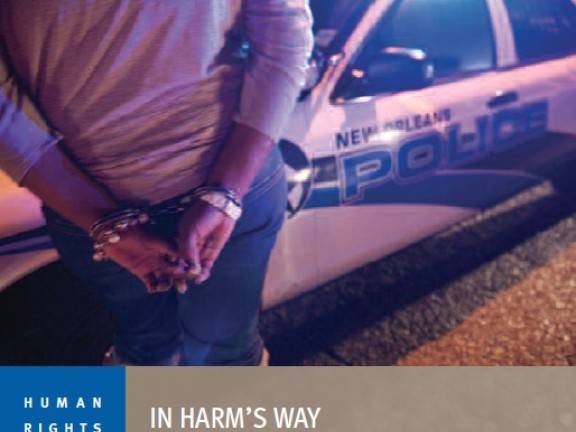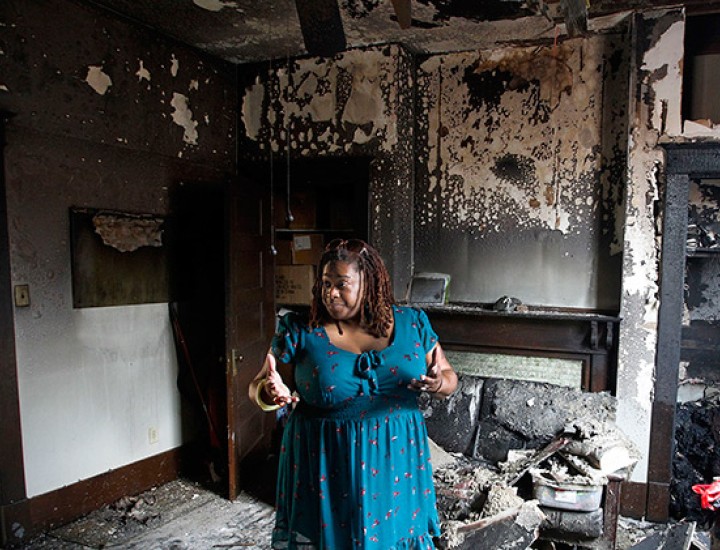Published October, 2014
In Harm’s Way: State Response to Sex Workers, Drug Users, and HIV in New Orleans, Human Rights Watch (2013)

This report, released in December 2013, is based on research conducted between February and September of that year in New Orleans, Louisiana, a city with the second highest rate of HIV infection in the United States and the fourth highest rate of AIDS among adults and adolescents. Human Rights Watch researchers utilized a mixed-method approach that combined quantitative and qualitative interviews with key informant interviews and legal and policy analysis. The focus of the research was on the experiences and needs of individuals who self-identified as having had sex for money, drugs, or life necessities in the past year. In addition to basic demographic information, questions emphasized access to HIV prevention, medical care, and barriers to sustaining HIV treatment; interaction with the police and incarceration experience; and housing status.
The report’s findings are broken down into nine categories; Barriers to HIV Prevention for People Who Exchange Sex, Police Harassment for Possession of Condoms, Police Profiling, Abuse and Misconduct, Lack of Access to Health Care, Barriers to Sustaining HIV Treatment, Lack of Access to Housing as a Barrier to Sustaining HIV Treatment, Incarceration as a Barrier to Sustaining HIV Treatment, Transgender Women, Jail and HIV, and HIV and the Hispanic Community in New Orleans.
According to the report, while there is an active network of community organizations, medical providers and officials in the health department in New Orleans who are working to ensure access to care and services, their work is undermined by state and local laws and policies, as well as police practices, that not only fail to reduce the risk of harm but exacerbate a high-risk environment where it is difficult for people to avoid HIV infection and to access life-saving treatment and support.
The report concludes that, in the U.S. South, socio-economic conditions combine with harmful state laws and policies that undermine human rights and create an environment in which the risk of acquiring, transmitting, and dying of HIV is higher than any region in the country. This deadly combination, it says, takes an especially devastating toll on minority communities, a crisis that federal, state and city governments are obligated under international law to address.
Copyright Information: CHLP encourages the broad use and sharing of resources. Please credit CHLP when using these materials or their content. and do not alter, adapt or present as your work without prior permission from CHLP.
Legal Disclaimer: CHLP makes an effort to ensure legal information is correct and current, but the law is regularly changing, and the accuracy of the information provided cannot be guaranteed. The legal information in a given resource may not be applicable to all situations and is not—and should not be relied upon—as a substitute for legal advice.
